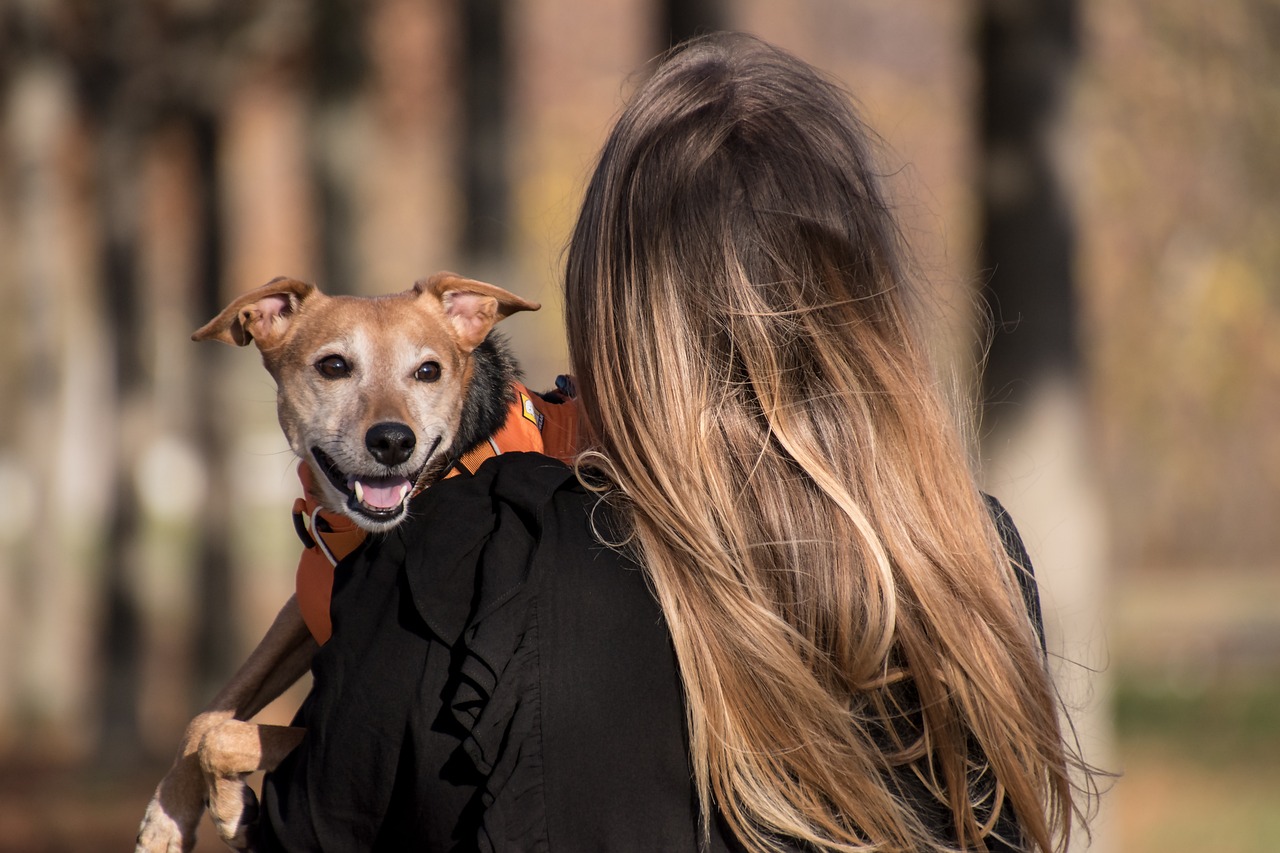How to Use Pet Adoption to Promote Social Change
Pet adoption is more than just bringing a furry friend into your home; it’s a powerful catalyst for social change. Imagine a world where every animal has a loving home and every community thrives on compassion and responsibility. By embracing pet adoption, we can not only save lives but also foster a culture that values empathy and community engagement. This article dives into the profound impact that adopting pets can have on societal issues, illustrating how a simple act of kindness can create ripples of positive change.
Understanding why pet adoption matters is crucial. It’s not just about giving a dog or cat a second chance; it’s about combatting overpopulation in shelters and promoting responsible pet ownership. When you adopt, you’re actively participating in a movement that prioritizes the well-being of animals. With millions of pets waiting for homes, adopting one can save a life and inspire others to do the same. The ripple effect of this decision can lead to a more humane society where animals are treated with respect and love.
Adopting pets offers numerous benefits that extend beyond the individual. It's about companionship, emotional support, and even health improvements. Studies have shown that pet owners often experience lower blood pressure and reduced stress levels. But the benefits don’t stop there. When you adopt, you're also contributing to a healthier community. Pets can help bridge gaps between people, foster new relationships, and create a sense of belonging. It's like having a furry ambassador for social change right at your side!
Have you ever noticed how a wagging tail or a gentle purr can instantly lift your spirits? Pets provide emotional support that can significantly reduce stress and anxiety levels. They offer unconditional love and companionship, which can be particularly beneficial during tough times. Imagine coming home after a long day, only to be greeted by a furry friend who’s ecstatic to see you. That feeling of joy is a reminder that you’re never alone. This psychological advantage contributes to overall well-being, creating a happier, more connected community.
Adopting pets often leads to new social interactions. Think about it: when you take your dog for a walk, you’re likely to meet other dog owners, share stories, and even make new friends. This simple act of walking a pet can foster community connections and encourage socialization among individuals. It’s a beautiful cycle—pets bring people together, and in turn, those connections can lead to collaborative efforts to promote animal welfare and responsible pet ownership.
Pet adoption teaches responsibility and empathy, especially in children. When kids learn to care for an animal, they develop a sense of accountability and understanding of another being’s needs. This nurturing experience instills valuable life lessons that can promote social change. It’s like planting a seed of compassion that grows into a tree of empathy, providing shade and shelter for others in the community.
Adoption events serve as a platform for community engagement. These gatherings not only raise awareness about the importance of pet adoption but also encourage participation from local residents. When people come together to support a cause, it creates a sense of unity and shared purpose. By promoting a culture of adoption within communities, we can inspire others to consider adopting and make a lasting impact on the lives of animals and their future families.
Animal overpopulation is a significant issue that affects communities everywhere. Shelters are often overwhelmed with animals in need of homes, and without adoption, many of these pets face uncertain futures. By adopting, you are directly helping to reduce the number of homeless animals and addressing the societal implications of this challenge. It’s not just a personal choice; it’s a community responsibility.
Spaying and neutering are critical components of responsible pet ownership. These initiatives help control pet populations and prevent unwanted litters. When communities come together to promote these practices, they can significantly reduce the number of animals in shelters. It’s a proactive approach to a problem that requires collective action. By educating pet owners about the benefits of spaying and neutering, we can create a more sustainable future for our furry friends.
Partnering with local shelters enhances adoption efforts. Collaboration between community members and shelters can lead to effective solutions for pet overpopulation and homelessness. By working together, we can create programs that encourage adoption, provide resources for pet owners, and ensure that every animal has a chance at a loving home. It’s about building a network of support that benefits both pets and people alike.
- Why should I adopt instead of buying a pet? Adopting saves lives and helps combat overpopulation in shelters.
- What are the benefits of pet ownership? Pets provide companionship, emotional support, and can improve your health.
- How can I get involved in my community’s pet adoption efforts? Participate in local adoption events, volunteer at shelters, or spread awareness about the importance of adopting.

The Importance of Pet Adoption
Understanding why pet adoption matters is crucial in today’s society. Every year, millions of animals end up in shelters, waiting for a second chance at life. When you choose to adopt, you're not just saving a life; you're also making a conscious decision to promote responsible pet ownership and combat the growing issue of overpopulation in shelters. It’s like throwing a pebble into a pond—the ripples of your decision can create a wave of social responsibility that benefits not just the animals, but the entire community.
Adopting a pet is about more than just bringing home a furry friend; it’s about embracing a philosophy that values life and compassion. When you adopt, you’re saying “no” to the cycle of breeding and “yes” to giving a home to an animal in need. This act of kindness can inspire others to follow suit, fostering a community that prioritizes animal welfare and encourages others to consider adoption as a viable and noble option.
Moreover, pet adoption can drastically reduce the number of animals that are euthanized each year due to overcrowded shelters. According to the ASPCA, approximately 1.5 million shelter animals are euthanized annually in the United States alone. By adopting, you play a pivotal role in changing this heartbreaking statistic. When communities come together to support adoption initiatives, they create a culture that values every life, leading to fewer animals on the streets and in shelters.
In addition to saving lives, pet adoption promotes a sense of community. When people come together for a common cause, such as adopting pets, they build connections that transcend individual differences. This shared experience can lead to a more compassionate society where empathy and kindness thrive. For instance, many shelters host adoption events that not only showcase available pets but also serve as community gatherings, bringing people together to celebrate the joy of pet ownership.
Ultimately, the importance of pet adoption cannot be overstated. It is a powerful tool for social change that promotes responsible pet ownership, reduces overpopulation, and fosters a sense of community. By adopting, you are not only changing the life of an animal, but you are also contributing to a larger movement that emphasizes compassion and responsibility. So, the next time you consider adding a pet to your family, remember that your choice can make a significant impact on the world around you.

Benefits of Adopting Pets
When it comes to adopting pets, the benefits extend far beyond the joy of having a furry friend by your side. Adopting a pet is like opening a door to a world filled with unconditional love, companionship, and countless health benefits. Imagine coming home after a long day to a wagging tail or a gentle purr; it’s an instant mood booster! But what if I told you that adopting a pet can also play a significant role in enhancing your community? Let’s dive into the myriad of advantages that pet adoption brings not only to the individual but also to society at large.
One of the most profound benefits of adopting a pet is the emotional support they provide. Pets have an innate ability to sense our feelings, often curling up next to us when we’re feeling down or bringing a smile to our faces with their playful antics. Research shows that pet owners experience lower levels of stress and anxiety, leading to better mental health outcomes. In fact, studies have indicated that the simple act of petting a dog or cat can release oxytocin, often referred to as the "love hormone," which fosters feelings of connection and happiness. It's like having a built-in therapist who’s always ready to listen!
But the benefits of pet adoption don’t stop at emotional support. Pets can also encourage physical activity, which is essential for maintaining a healthy lifestyle. Regular walks, playtime, and outdoor adventures with your pet can help you stay active, reducing the risk of obesity and related health issues. According to the Centers for Disease Control and Prevention (CDC), pet ownership is associated with lower blood pressure, cholesterol levels, and triglyceride levels. So, not only do you gain a loyal companion, but you also get a workout buddy that keeps you moving!
Moreover, adopting a pet fosters a sense of community and social connection. How many times have you struck up a conversation with a fellow dog owner at the park? Pets serve as a bridge that connects people, creating opportunities for social interaction and friendship. They can help break down barriers, making it easier to meet new people and form lasting relationships. In this way, adopting a pet can transform not just your life, but also the lives of those around you, creating a more connected and compassionate community.
Additionally, adopting a pet instills values of responsibility and empathy, particularly in children. Caring for a pet requires commitment and nurturing, teaching kids valuable lessons about compassion and the importance of looking after another living being. These lessons can have a profound impact, encouraging children to develop a sense of responsibility that extends beyond their pets, fostering a culture of care and respect for all living creatures. It’s like planting seeds of kindness that can grow into a more empathetic society.
In conclusion, the benefits of adopting pets are multifaceted, creating a ripple effect that positively impacts individuals and communities alike. From emotional support and health improvements to fostering social connections and teaching responsibility, adopting a pet is truly a transformative experience. So, if you're considering bringing a furry friend into your life, remember that you’re not just saving a life; you’re also enriching your own and contributing to a more compassionate world.
- What are the first steps to adopting a pet? Start by researching local shelters and adoption agencies, and consider what type of pet fits your lifestyle best.
- How can I prepare my home for a new pet? Ensure your home is pet-proofed by removing hazards, and set up a comfortable space for your new companion.
- Are there any costs associated with adopting a pet? Yes, while adoption fees can vary, you should also consider ongoing costs such as food, veterinary care, and supplies.
- How can I support my local shelter aside from adopting? You can volunteer your time, donate supplies, or help spread the word about adoptable pets in your community.
Emotional and Mental Health Benefits
When it comes to pet adoption, the emotional and mental health benefits are nothing short of remarkable. Imagine coming home after a long, exhausting day, and there’s your furry friend, wagging their tail or purring softly, ready to shower you with unconditional love. This simple act of companionship can significantly reduce feelings of stress and anxiety. Studies show that pet owners often experience lower levels of cortisol, the stress hormone, and higher levels of serotonin and dopamine, which are linked to feelings of happiness and well-being.
Moreover, pets can act as a powerful source of emotional support. They provide a listening ear (or paw) when we need to vent about our day, and their presence can be incredibly calming. For many, pets become a vital part of their support system, helping to alleviate feelings of loneliness and depression. Just think about it: when you’re feeling down, having a pet by your side can be like having a warm blanket wrapped around you on a chilly day.
But the benefits don’t stop there! The act of caring for a pet can also instill a sense of purpose and routine in our lives. This is especially important for individuals who may feel lost or aimless. Pets thrive on routine, and in turn, they encourage their owners to establish healthy habits, such as regular walks or playtime. This not only enhances the pet's well-being but also contributes to the owner's physical health. It’s a win-win situation!
Furthermore, adopting a pet often leads to increased social interactions. When you take your dog for a walk, you’re likely to meet other dog owners, creating opportunities for new friendships and connections. This social aspect is crucial, especially for those who may struggle with social anxiety or isolation. Pets can act as social catalysts, breaking down barriers and helping individuals connect with others in their community.
In fact, research has shown that pet owners are generally more engaged in their communities. They often participate in local events, such as dog parks, pet adoption fairs, and community walks, which foster a sense of belonging. So, adopting a pet doesn’t just change your life; it can change the lives of those around you too!
To summarize, the emotional and mental health benefits of pet adoption are profound. From reducing stress and anxiety to fostering social connections, the impact of having a pet extends far beyond just companionship. It’s about creating a healthier, happier life for both the pet and the owner, ultimately promoting a culture of empathy and responsibility in our communities.
- What are the mental health benefits of having a pet? Pets can reduce stress, anxiety, and feelings of loneliness. They provide emotional support and help establish routines that contribute to overall well-being.
- Can pets help with social interactions? Yes! Pets often serve as social catalysts, encouraging interactions with other pet owners and fostering a sense of community.
- How does pet ownership impact physical health? Caring for a pet encourages physical activity, such as walking or playing, which can improve overall health and fitness levels.
Building Social Connections
When you adopt a pet, you’re not just bringing a furry friend into your home; you’re opening the door to a whole new world of social interactions and connections. Imagine walking your dog in the park and striking up a conversation with another pet owner. Suddenly, you have a shared interest, a common ground that can blossom into a friendship. It’s like joining an exclusive club where the membership fee is simply love and care for your pets.
Pets have an incredible way of breaking the ice. They’re natural conversation starters! Whether it’s a wagging tail or a playful meow, these little creatures can draw people in. For instance, you might find yourself chatting with a neighbor about your dog’s latest antics or exchanging tips on training techniques with fellow pet lovers. This is not just about casual chats; it’s about building a community. When people come together over a shared passion for animals, it fosters a sense of belonging and camaraderie.
Moreover, pet adoption events serve as fantastic opportunities for socialization. These gatherings not only help find homes for animals but also create a vibrant atmosphere where people can meet and mingle. You might encounter someone who shares your enthusiasm for rescue pets or someone who has valuable insights on pet care. The connections made at these events can lead to lasting friendships, support networks, and even collaborations on community initiatives aimed at promoting responsible pet ownership.
In addition to forming friendships, pet ownership can enhance your social skills. Caring for a pet often requires you to interact with various people, including veterinarians, groomers, and fellow pet owners. Each interaction is a chance to practice communication, empathy, and understanding—qualities that are essential for building strong relationships. As you navigate these social landscapes, you’ll find that your confidence grows, and your ability to connect with others deepens.
In essence, adopting a pet is like planting a seed in the community garden of social connections. As you nurture your relationship with your pet, you’ll find that it blossoms into a network of friendships, support, and shared experiences. So, if you’re looking to enrich your social life, consider adopting a pet. Not only will you gain a loyal companion, but you’ll also cultivate a thriving social circle that enhances your life in ways you never imagined.
- How can adopting a pet help me meet new people?
Adopting a pet often leads to social interactions with other pet owners, whether in parks, at adoption events, or through local pet-related activities. - What types of social events are organized for pet owners?
Many communities host adoption events, pet fairs, and social gatherings that encourage pet owners to connect and share experiences. - Can pets help improve my mental health?
Yes! Pets provide companionship and emotional support, which can significantly reduce feelings of loneliness and anxiety. - How do I find pet adoption events in my area?
Check with local animal shelters, community centers, or social media groups dedicated to pet adoption and welfare for upcoming events.
Encouraging Responsibility and Empathy
Adopting a pet is more than just bringing a furry friend into your home; it’s a profound journey that teaches responsibility and empathy. Imagine a child who learns to care for a pet—feeding, grooming, and ensuring their well-being. This experience is akin to a mini boot camp for life skills. It cultivates a sense of duty, as the child understands that their new companion relies on them for survival and happiness. This bond fosters an emotional connection that can shape their character for years to come.
When children engage in caring for pets, they learn to recognize the needs of others. It’s not just about meeting their pet’s needs; it’s about developing an understanding of compassion and kindness towards all living beings. This learning process can ripple outward, influencing how they interact with peers, family members, and even strangers. For instance, a child who nurtures a puppy is likely to exhibit greater empathy towards friends who may be feeling down or upset. They start to understand that everyone has feelings, and just like their pet, others require love and attention.
Moreover, the act of adopting a pet can serve as a powerful example for adults as well. When parents demonstrate responsible pet ownership, they set a precedent for their children. They show that taking care of an animal is not just a chore, but a meaningful commitment. This can lead to discussions about the ethical treatment of animals, the importance of adoption over purchasing from breeders, and the responsibilities that come with pet ownership. These conversations can shape a generation that is more aware and considerate of animal welfare.
In addition to fostering empathy, pet adoption encourages a sense of community responsibility. When families adopt pets, they often become advocates for animal welfare, sharing their experiences and encouraging others to consider adoption. This communal spirit can lead to greater awareness about the plight of homeless animals and the importance of spaying and neutering. As more people become involved, the community can work together to create a culture that values and respects all creatures.
To illustrate the impact of pet adoption on responsibility and empathy, consider the following table:
| Aspect | Impact on Individuals | Impact on Community |
|---|---|---|
| Responsibility | Learning to care for a dependent being | Increased awareness of animal welfare |
| Empathy | Understanding and relating to others' feelings | Promoting kindness within the community |
| Community Engagement | Involvement in local animal shelters and events | Building a supportive network for animal welfare |
In conclusion, adopting a pet is not merely an act of kindness; it’s a transformative experience that instills valuable life lessons in both children and adults. By encouraging responsibility and empathy, pet adoption can indeed spark significant social change, creating more compassionate communities. So, if you’re considering adding a furry friend to your family, remember, you’re not just changing a pet’s life; you’re also nurturing a culture of empathy and responsibility that can resonate through generations.
- What age is appropriate for children to start caring for a pet? Generally, children aged 5 and up can start learning basic pet care responsibilities with adult supervision.
- How can I teach my child empathy through pet ownership? Engage your child in daily pet care routines and discuss the feelings and needs of the pet.
- What are the responsibilities of pet ownership? Responsibilities include feeding, grooming, exercising, vet visits, and providing love and attention.
- Can adopting a pet really influence social change? Yes, by fostering empathy and responsibility, pet adoption can lead to a more compassionate society.
Community Engagement through Adoption Events
Adoption events are more than just opportunities to find a furry friend; they are vibrant gatherings that foster a sense of community and shared purpose. Imagine a sunny Saturday afternoon where families, friends, and animal lovers come together in a local park, all united by the common goal of finding homes for pets in need. These events create an atmosphere of excitement and hope, drawing in people from all walks of life. They serve as a platform to raise awareness about the importance of pet adoption and responsible pet ownership, while also offering a chance for attendees to engage with their community.
During these events, various activities are organized to keep the atmosphere lively and engaging. From face painting for kids to pet training demonstrations, there’s something for everyone. Local vendors often set up booths, showcasing pet-related products and services, which not only supports local businesses but also provides valuable information to potential pet owners. The communal aspect of these events is palpable, as people share stories about their pets, exchange tips, and even form new friendships. It’s a beautiful reminder of how a shared passion for animals can bring people together and strengthen community bonds.
Moreover, adoption events often feature educational sessions that cover essential topics such as pet care, training, and the importance of spaying and neutering. These sessions are designed to equip potential adopters with the knowledge they need to become responsible pet owners. By fostering a culture of education, these events empower individuals to make informed decisions, which ultimately contributes to the overall well-being of the pets and the community.
To illustrate the impact of these events, consider the following statistics:
| Year | Number of Pets Adopted | Community Participation |
|---|---|---|
| 2020 | 1,200 | 500 |
| 2021 | 1,800 | 800 |
| 2022 | 2,500 | 1,200 |
As shown in the table, the number of pets adopted and community participation has steadily increased over the years, showcasing the effectiveness of these events in promoting pet adoption. Each adoption represents not just a home found for a pet, but also a step towards a more compassionate society. The ripple effect of these gatherings can be profound; as more people become aware of the plight of homeless animals, they are more likely to advocate for adoption and responsible pet ownership in their circles.
In conclusion, adoption events are a powerful tool for community engagement. They not only facilitate the adoption of pets but also cultivate a sense of unity and responsibility among community members. By participating in these events, individuals can contribute to a larger movement that promotes social change, encourages empathy, and ultimately leads to a brighter future for both pets and people alike.
- What should I expect at an adoption event? Expect a fun atmosphere with activities, vendors, and many adoptable pets looking for homes!
- Can I adopt a pet on the same day as the event? Yes, many events allow for same-day adoptions, but it’s best to check with the specific organization.
- What if I'm not ready to adopt? You can still support the cause by volunteering, fostering, or spreading the word about adoption.
- Are there fees associated with adoption? Yes, most shelters require an adoption fee, which often covers vaccinations and spaying/neutering.

Addressing Animal Overpopulation
Animal overpopulation is a pressing issue that affects communities across the globe. Every year, millions of animals end up in shelters, many of which are euthanized due to a lack of space and resources. The **impact of this crisis** is not just felt by the animals but also resonates throughout society. It creates a cycle of neglect and abandonment that can lead to increased crime rates, public health concerns, and a general sense of community disconnection. By promoting pet adoption, we can directly address this issue and foster a more compassionate society.
One of the most effective ways to combat animal overpopulation is through **spaying and neutering** initiatives. These procedures are essential in controlling the pet population and preventing unwanted litters. When pet owners take responsibility for their animals by ensuring they are spayed or neutered, they contribute to a significant reduction in the number of homeless animals. In fact, studies show that communities with active spaying and neutering programs often see a marked decline in shelter intake rates. This is a win-win situation, as fewer animals in shelters means more resources available for those that are there.
Moreover, collaboration with local shelters plays a crucial role in addressing this issue. When community members partner with shelters, they can create programs that not only promote adoption but also educate the public about responsible pet ownership. For example, shelters can host workshops that teach pet owners about the importance of spaying and neutering, as well as the benefits of adopting rather than buying pets. These initiatives can lead to a **more informed public**, which in turn fosters a culture of responsibility and care for animals.
By engaging in community outreach, shelters can also create a network of support that encourages more people to adopt. This can include:
- Organizing adoption events in local parks or community centers.
- Collaborating with local businesses to provide incentives for adopting pets.
- Creating educational materials that highlight the importance of spaying and neutering.
In conclusion, addressing animal overpopulation is not just about reducing numbers; it’s about creating a **culturally responsible community** that values the lives of all animals. Through spaying and neutering initiatives and collaboration with local shelters, we can foster a society that prioritizes pet adoption and responsible pet ownership. This effort requires a united front, where everyone, from individual pet owners to local businesses, plays a part in creating a better future for our furry friends.
Q1: What is animal overpopulation?
Animal overpopulation occurs when the number of animals exceeds the capacity of the environment or community to care for them. This often leads to overcrowded shelters and an increase in stray animals.
Q2: How can spaying and neutering help?
Spaying and neutering prevent unwanted litters, which helps control the pet population. This is crucial in reducing the number of animals that end up in shelters.
Q3: What can I do to help with animal overpopulation?
You can help by adopting pets instead of buying them, ensuring your pets are spayed or neutered, and supporting local shelters through donations or volunteering.
Q4: Why is pet adoption important?
Pet adoption saves lives, combats animal overpopulation, and promotes responsible pet ownership, creating a ripple effect of positive change within communities.
Spaying and Neutering Initiatives
When it comes to responsible pet ownership, spaying and neutering are pivotal initiatives that can have a profound impact on animal overpopulation. These procedures not only prevent unwanted litters but also contribute to the overall health and well-being of pets. Imagine a world where every pet has a loving home, free from the threat of abandonment or homelessness. By spaying and neutering, we take a significant step towards achieving that vision.
Many people may wonder, "What exactly are spaying and neutering?" Simply put, spaying refers to the surgical procedure that removes the ovaries and usually the uterus of female animals, while neutering involves removing the testicles of male animals. These procedures are often performed at a young age, and the benefits extend far beyond just controlling the pet population.
One of the most compelling reasons to support spaying and neutering initiatives is the reduction of health risks for pets. For instance, spayed females are less likely to develop certain cancers, and neutered males are less prone to prostate issues. This not only leads to healthier pets but also reduces the financial burden on pet owners and shelters alike. In fact, the cost of caring for an unplanned litter can be significantly higher than the cost of spaying or neutering a pet.
Furthermore, spaying and neutering contribute to a more harmonious community. When fewer animals are born, the strain on local shelters diminishes, allowing them to allocate their resources more effectively. This means more funds can be directed towards education, adoption events, and other programs aimed at promoting animal welfare. Community members can play a crucial role in this initiative by participating in local spay/neuter programs and supporting legislation that encourages responsible pet ownership.
It's essential to recognize that spaying and neutering are not just individual decisions; they are community responsibilities. Many local governments and animal welfare organizations offer low-cost or even free spay/neuter clinics to make these services accessible to everyone. By taking advantage of these programs, pet owners can help create a ripple effect of positive change. When we work together as a community, we can significantly reduce the number of homeless animals and ensure that every pet has a chance at a loving home.
In conclusion, spaying and neutering initiatives are vital components in the fight against animal overpopulation. They promote healthier pets, reduce the financial burden on owners and shelters, and foster a sense of community responsibility. By embracing these initiatives, we can pave the way for a brighter future for our furry friends and our communities.
- What age should I spay/neuter my pet? It's generally recommended to spay or neuter pets between 4 to 6 months of age, but consult your veterinarian for specific advice based on your pet's breed and health.
- Will spaying or neutering change my pet's behavior? Many pets become calmer and less aggressive after being spayed or neutered, but it's essential to note that individual behavior can vary.
- Are there any health risks associated with spaying/neutering? While there are minor risks associated with any surgery, the health benefits often outweigh these risks. Always discuss concerns with your veterinarian.
- How can I find low-cost spay/neuter services? Check with local animal shelters or veterinary clinics, as many offer affordable services or can direct you to community resources.
Collaboration with Local Shelters
When we talk about pet adoption, it's essential to recognize the vital role that local shelters play in this process. These shelters are more than just temporary homes for animals; they are the heart and soul of our communities, working tirelessly to find loving families for countless pets. By collaborating with local shelters, we can create a powerful network that not only enhances adoption rates but also fosters a deeper sense of community responsibility.
One of the most impactful ways to collaborate with shelters is through community events. Imagine a lively gathering filled with people, pets, and a sense of purpose. Local businesses can sponsor adoption days, providing food, drinks, and entertainment while promoting their brands. This not only brings in potential adopters but also raises awareness about the shelter's mission. When local businesses support shelters, they help create a culture of compassion and social responsibility.
Moreover, schools can play a significant role in this collaboration. Educational programs that involve students in shelter activities can foster a sense of empathy and responsibility. For example, organizing field trips to shelters can help children understand the importance of animal welfare. They can participate in activities such as:
- Fundraising for shelter needs
- Creating awareness campaigns
- Volunteering for pet care and socialization
These interactions not only benefit the animals but also teach children valuable lessons about compassion and community service.
Additionally, social media has become a powerful tool for promoting collaboration. Shelters can partner with local influencers to share their stories, showcase adoptable pets, and highlight upcoming events. This digital outreach can reach a broader audience, encouraging more people to consider adoption. A simple post can change lives, and when communities rally around their local shelters, the impact can be profound.
Finally, fostering relationships between local veterinarians and shelters can ensure that adopted pets receive the necessary health care. Many shelters lack the resources to provide comprehensive medical care, and by partnering with local vets, we can ensure that pets are healthy and ready for their forever homes. This collaboration not only benefits the animals but also instills confidence in potential adopters, knowing that they are adopting a pet that has received proper medical attention.
In summary, collaboration with local shelters is crucial for promoting pet adoption and addressing the issues of animal overpopulation. By engaging with our communities, supporting shelters, and fostering a culture of compassion, we can create a brighter future for our furry friends and the communities they inhabit.
1. How can I get involved with my local shelter?
You can start by volunteering your time or resources. Many shelters welcome help with walking dogs, socializing cats, or even administrative tasks. Additionally, consider attending adoption events or donating supplies.
2. What are the benefits of adopting from a shelter?
Adopting from a shelter saves lives and helps combat overpopulation. Shelter pets are often vaccinated, spayed or neutered, and come with a wealth of love and companionship.
3. Can I foster a pet instead of adopting?
Absolutely! Fostering is a great way to help animals in need without the long-term commitment of adoption. It provides a temporary home for pets while they await their forever families.
4. What should I consider before adopting a pet?
Before adopting, consider your lifestyle, living situation, and the time you can dedicate to a pet. Research different breeds to find one that fits your family and activity level.
5. How do shelters ensure the pets are healthy before adoption?
Most shelters conduct health assessments, vaccinations, and spaying/neutering before placing pets for adoption. They also provide medical records to new pet owners.
Frequently Asked Questions
- Why is pet adoption important?
Pet adoption is crucial because it saves lives and helps combat the overpopulation crisis in animal shelters. When you adopt, you're not just giving a pet a home; you're also promoting responsible pet ownership and encouraging others in your community to do the same.
- What are the benefits of adopting a pet?
Adopting a pet brings numerous benefits such as companionship, emotional support, and even health improvements. Pets can help reduce stress and anxiety, making them wonderful companions for individuals and families alike.
- How do pets improve emotional and mental health?
Pets provide unconditional love and companionship, which can significantly reduce feelings of loneliness and anxiety. Their playful nature and need for care can also give owners a sense of purpose and routine, contributing to overall mental well-being.
- Can adopting a pet help me build social connections?
Absolutely! Owning a pet often leads to new friendships and social interactions. Whether it's meeting fellow pet owners at the park or engaging in community events, pets can be a great icebreaker and foster community connections.
- How does pet adoption teach responsibility and empathy?
Caring for a pet requires commitment and responsibility, which can teach valuable life lessons, especially to children. It helps instill empathy as they learn to understand and respond to the needs of their furry companions.
- What role do adoption events play in community engagement?
Adoption events are fantastic for raising awareness about pet adoption and animal welfare. They encourage participation from community members and promote a culture of caring for animals, making it easier for potential adopters to find their new best friend.
- How does pet adoption help with animal overpopulation?
Adopting pets directly reduces the number of homeless animals in shelters. It helps alleviate the burden on these facilities and encourages a culture of spaying and neutering, which are essential for controlling pet populations.
- What is the significance of spaying and neutering?
Spaying and neutering are vital practices that help control the pet population. By preventing unwanted litters, these initiatives contribute to reducing the number of animals in shelters and improve the overall health of pets.
- How can I collaborate with local shelters for pet adoption?
Partnering with local shelters can enhance your adoption efforts. You can volunteer, participate in events, or even host your own adoption drives. Collaboration helps create effective solutions for pet overpopulation and promotes a community-oriented approach to animal welfare.



















